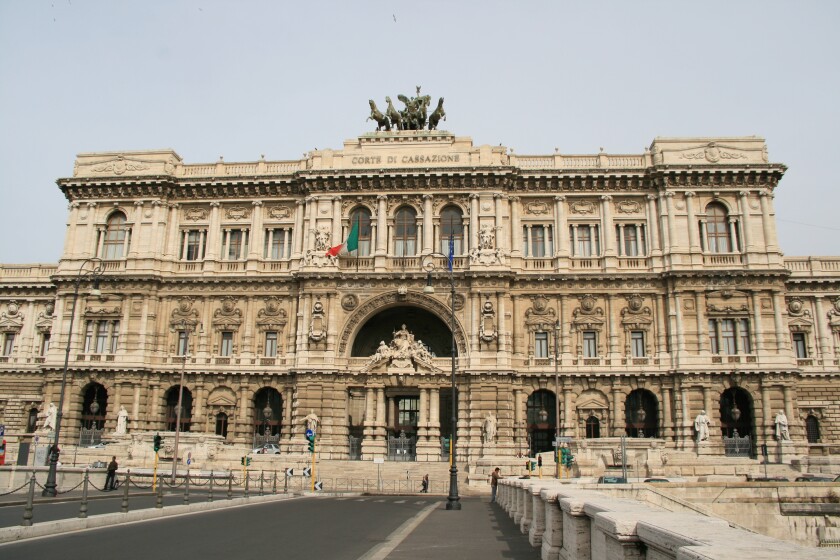The Italian Supreme Court, in Decision No 4427/25, has overturned the restrictive approach of the Italian Revenue Agency in considering interest on medium-to-long-term loans to qualified foreign lenders exempt only if received directly by beneficial owners.
In several instances (see Resolution No. 76/E of 2019 and responses No. 125 and No. 596 of 2021), the Italian Revenue Agency had, in a manner contrary to its previous interpretations and to broader principles of international tax law, restricted the scope of the exemption under Article 26, paragraph 5-bis of Presidential Decree No. 600/1973 to direct recipients of interest. This approach effectively undermined the very rationale of Article 22 of Law Decree No. 91/2014, which had introduced amendments to Article 26 with the declared aim of facilitating Italian enterprises in accessing credit from foreign lenders.
Overview of the case
In a case involving indirect lending granted by a Luxembourg-based fund (qualifying as an “institutional investor” subject to prudential supervision and thus falling within the category of exempt entities under Article 26, paragraph 5-bis) through a Luxembourg sub-holding (which, however, did not qualify for exemption under domestic law, nor as a beneficial owner of the interest under the EU’s Interest and Royalties Directive) to an Italian subsidiary, the Supreme Court carefully analysed previous positions taken by the tax authority and expressly deemed them incorrect.
As a result, the court recognised the Luxembourg fund’s right to receive (indirectly) interest free of withholding tax, and its right to a refund of the withholding tax prudently applied by the Italian subsidiary. For these purposes, it is noted that the expression “institutional investors” refers to entities, even though not subject to tax, whose activity consists of investing or managing investments, for their own benefit or on behalf of third parties (without taking into account their legal status or tax treatment in the country of establishment).
The decision of the Supreme Court on February 20 2025 is very well reasoned and will hardly be rebutted by the Italian Revenue Agency in future cases, since it is based on several strong grounds:
Under the common interpretation of Article 11 of double tax treaties based on the OECD Model Tax Convention (as commonly applied by the European Court of Justice; for example, in cases C-116/16, C 11/16, and C119/16), the tax regime on interest shall be verified in the hands of the ultimate beneficial owner of such interest, even when it is not the direct recipient;
The application of the look-through is coherent with the general principle of tax capacity laid down in Article 1 of the Italian Income Tax Code; and
As mentioned, the rationale behind the introduction of the domestic exemption was to enhance the funding of Italian entities by foreign lenders, including through “indirect lending”, as referred to in Article 6 of Law Decree No. 3/2014, which modified paragraph 5-bis of Presidential Decree No. 600/1973 and which was expressly entitled “indirect lending for foreign institutional investors”.
Implications of the ruling
This is a significant ruling by the Supreme Court, reopening, subject to lending authorisation considerations, the indirect lending market, at least for tax purposes.
Nevertheless, private equity investments and sub-participation structures should also always be evaluated for regulatory purposes. In particular, if the sub-participant is a foreign entity not licensed to lend in Italy, it is essential to assess whether the structure could be considered abusive based on the principles established by another ruling of the Italian Supreme Court (Decision No. 12777, issued on March 19 2019). Generally, sub-participation structures may be used in the context of secondary syndications, where the sub-participant has no direct relationship with the borrower. In other cases, pending regulatory clarification, alternative structures – such as Italian securitisations or bond issuances – may still be preferable.
Moreover, the decision reopens the discussion on application of the same look-through approach to the domestic exemption from withholding on dividends paid to EU/EEA qualifying funds (and to extra-EU funds, based on the free movement of capital principle set forth in Article 63 of the Treaty on the Functioning of the European Union).
The information contained in this article cannot be considered as legal advice. Alma LED does not accept any responsibility in relation to the use of this publication without the collaboration of its professionals.











